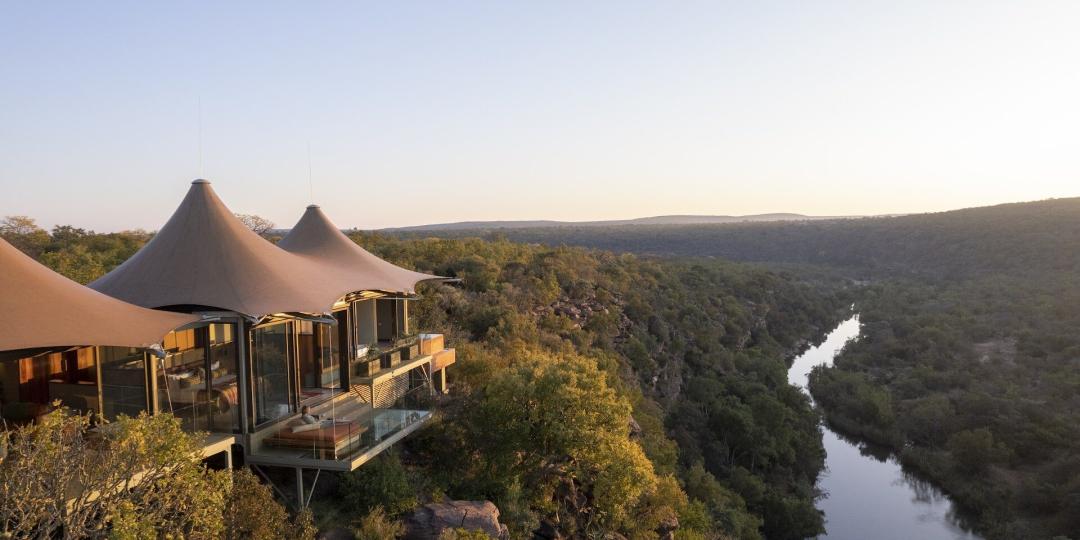Lepogo Lodges, a non-profit safari lodge in South Africa’s Limpopo province, has recently successfully reintroduced cheetahs and buffalo to the Lapalala Wilderness Reserve, contributing to the preservation of native wildlife.
Lapalala now boasts a third generation of lions and the birth of Wild Dog pups, further aiding endangered species conservation.
Nestled within 50 000ha of pristine wilderness, Lepogo ensures minimal environmental impact with strict lodge limits.
The lodge is a family-run venture and operates with complete energy self-sufficiency and fully offsets guests’ carbon footprints, supporting local communities and conservation.
Currently, Lepogo offers Noka Camp, a lodge with five stilted villas providing views of the Palala River. Melote House, designed for exclusive use, will open in January 2024, accommodating up to 16 guests.
Cheetah reintroduction
Lepogo Lodges is named after the Sotho word for cheetah. Africa’s fastest animals are endangered due to human activity and Lepogo has supported cheetah reintroductions and celebrated the birth of two cubs in the reserve. Guests can see cheetahs in their natural habitat on safaris and learn about conservation projects from expert guides.
Kate Hughes, Operations Director of Lepogo Lodges, said: “We have always loved and been fascinated by the cheetah, with its natural grace, elegance and incredible speed. The fact that these beautiful animals are now so endangered struck a chord with us and, before we even opened, we pledged to do whatever we could to help in their conservation and protection, which forms the ethos of our lodge. Through this work, we have been really fortunate to get to understand these creatures in the wild – as we witness them settle into their new habitat – and we are so proud to have had cheetah cubs, which were born in the reserve, go fully independent this past year. We hope to be able to make a real difference in the growth of the population.”
Buffalo reintroduction
This spring, Lepogo Lodges also sponsored the reintroduction of a herd of 50 buffalo and four bulls into the reserve – another key move in the conservation of pre-existing wildlife.
Buffalos play a very important role in regenerating the land by providing the soil with more nutrients and protecting the longevity of the reserve – where grazing resources vary considerably across the vast landscape. The grazing habits of the buffalo, an animal that is constantly on the move, ensure that the nutrients are equally distributed and as bulk grazers, the animals open up the grass areas for other species too.






